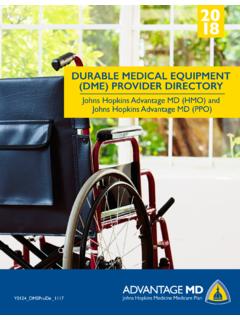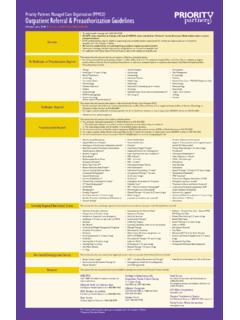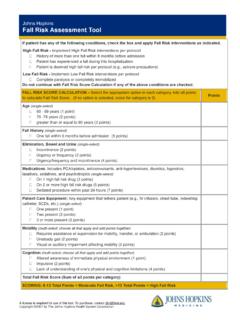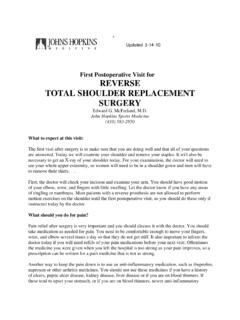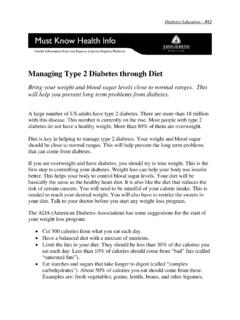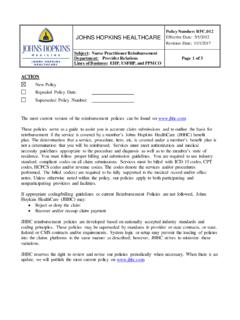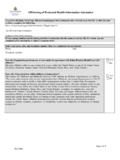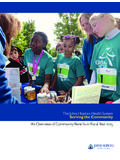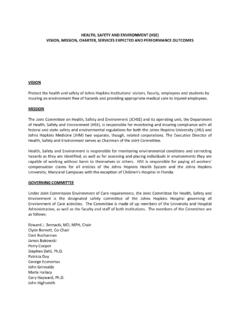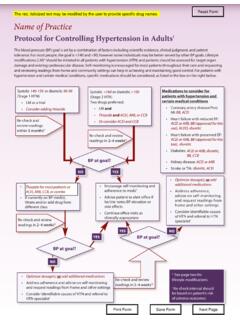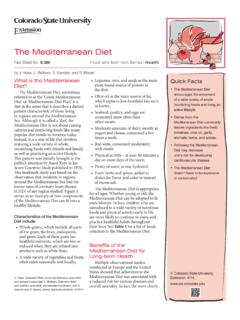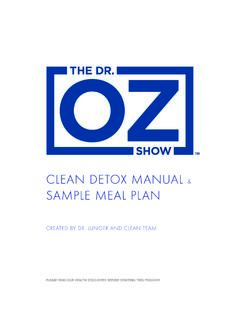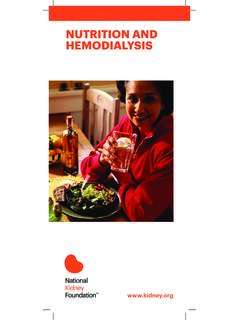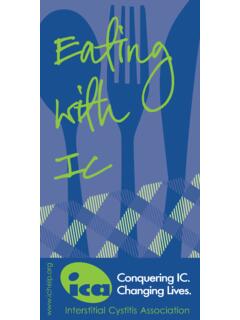Transcription of Tips to Lower Your Blood Pressure - Hopkins Medicine
1 Tips to LowerYour Blood Pressure Controlled Blood Pressure lowers your risk of heart attack and stroke. Medication is only one option for lowering high Blood these tips and you may see results in as soon as a few weeks. 1 Know your numbers. The best way to know your Blood Pressure numbers is to have your doctor check. If your Pressure is 140/90 or higher, you have high Blood Pressure . In certain conditions, your doctor might suggest that you aim for Lower Blood Pressure levels. 2 Monitor your Pressure at home, if your doctor suggests it.
2 Ask your doctor to recommend an appropriate device. Once you have it, ask your doctor to show you how to use it correctly. Take readings at the same time(s) each day, but don't take them right after waking up or within 30 minutes after eating , exercising, smoking or drinking alcohol or caffeine. Write your readings down and share them with your doctor at each visit. Bring your device with you, too, so your doctor can make sure it's working properly. 6 Stop smoking. The nicotine in tobacco products can raise your Blood Pressure by as much as 10 points for 3 Make changes to your diet.
3 Aim for 1,500 mg of sodium a day. Check food labels for sodium content. Try to choose foods that have 200 mg or less of sodium up to an hour after you smoke. Ask your doctor for help quitting. Avoid being around others who smoke. per serving. Limit high sodium items like soy sauce, salad dressing, lunch meats and prepared foods. Include Dietary Approaches to Stop Hypertension ( dash ) in your diet . 7 Watch the caffeine. Not everyone's Blood Pressure is sensitive to caffeine. If your Pressure increases by 5 to 10.
4 Points within 30 minutes of drinking caffeine, you may need to dash suggests that each day you eat: at least 4 servings each cut back. There is a lot of caffeine in coffee, tea and some sodas. of fruit and vegetables; 2-3 servings of low-fat dairy products;. and no more than 171 grams of lean meat. 8 Reduce stress. Identify sources of stress in your life and consider what changes you can make to reduce stress. 4 Lose weight. Losing as little as 10 pounds can Lower your Blood Pressure . Talk to your doctor about an eating plan , such as the dash diet, tailored to your needs.
5 Try a stress-reducing activity, such as tai chi, yoga, meditation or deep-breathing exercises. 5 Exercise regularly. Physical activity has many benefits. Aim for at least 30 minutes of planned physical activity 5. 9 Limit alcohol. Drinking too much alcohol can raise Blood Pressure and reduce the effectiveness of Blood Pressure medications. Limit alcohol to two drinks a day for days a week. Find ways to increase your physical activity men and one a day for women. A drink is 355 ml of beer, use the stairs instead of the elevator, take a walk instead of 148 ml of wine or 44 ml of liquor.
6 Watching TV. Disclaimer/Disclosure: 2011 Johns Hopkins University. All rights reserved. All information is intended for your general knowledge only and is not a substitute for medical advice or treatment for specific medical conditions. You should seek prompt medical care for any specific health issues and consult your physician before starting a new fitness regimen.
